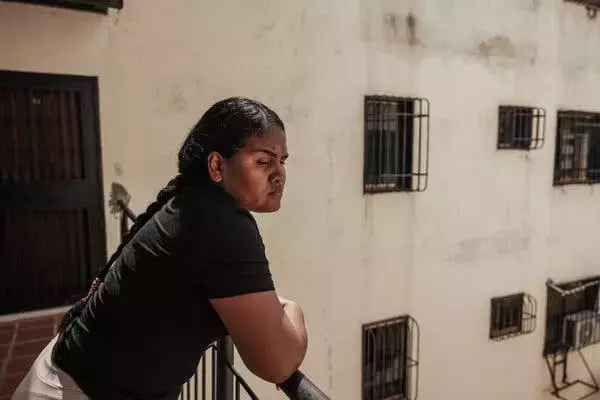
The forced separation of Venezuelan children from their parents due to deportation policies has emerged as a significant humanitarian concern in the United States. This complex issue highlights the agonizing decisions parents must make to safeguard their children's futures, often at great personal cost. Many families face an impossible choice: keep their children with them, risking their placement in foster care, or arrange for them to remain with trusted individuals in the US, hoping for a future reunion. The emotional and practical challenges of such separations reverberate deeply within these communities, underscoring the urgent need for more humane and comprehensive immigration solutions that prioritize family unity.
These heart-wrenching situations are not isolated incidents but rather a growing trend, creating a shadow population of children living in limbo, reliant on the kindness of relatives, neighbors, or even newfound acquaintances. The experiences of these children and their parents reveal the profound human impact of stringent immigration enforcement, where legal frameworks often clash with the fundamental human desire to keep families together. The long-term consequences for these children, including their psychological well-being and sense of belonging, are a pressing concern that demands attention and empathy from policymakers and society at large.
The Anguish of Separation: Parents Deported, Children Remain
In a deeply moving account, an 11-year-old Venezuelan boy found himself living alone in his Texas home after his mother's detention by U.S. immigration officials and subsequent deportation. For three months, Emmanuel Leandro Caicedo Venecia attended school and even walked to his fifth-grade graduation to receive his diploma, with a neighbor providing food while he largely cared for himself. His mother, Deisy Carolina Venecia Farías, made the agonizing decision to misrepresent his living situation to immigration authorities, fearing he would be placed in foster care, leading to her deportation without him. This individual story epitomizes the broader humanitarian crisis where parents, facing deportation, are forced to make impossible choices about their children's future, hoping for eventual reunification while enduring immense uncertainty and emotional distress.
The harrowing case of Emmanuel Leandro Caicedo Venecia underscores the profound human cost of current immigration policies. His mother, Deisy Carolina Venecia Farías, was left with an unbearable choice: either risk her son being taken into foster care if she acknowledged his unaccompanied status, or create a fiction that would allow him to remain in the US with some semblance of stability, even if it meant her immediate separation from him. Her deportation to Venezuela left Emmanuel to fend for himself for an extended period, a testament to his resilience but also a stark reminder of the vulnerability of children caught in such circumstances. This incident, while specific, reflects a widespread phenomenon where Venezuelan parents, often seeking asylum or better opportunities, face the agonizing prospect of leaving their children behind with relatives, friends, or even distant acquaintances in the United States, rather than subjecting them to the unknown fate of deportation to a country they perceive as unsafe. The underlying hope, for parents like Ms. Venecia Farías, is that one day, they will be reunited with their children, but the path to such a reunion is often fraught with legal, logistical, and emotional obstacles.
The Growing Plight of Unaccompanied Venezuelan Children in the US
Across the United States, an increasing number of Venezuelan children are being left behind as their parents are deported to their home country. These children often find themselves in the care of extended family members, neighbors, or other designated caregivers, arranged by parents who made the difficult decision to prioritize their children's well-being and potential future in the US over immediate family unity. This trend highlights a critical and often overlooked consequence of strict immigration enforcement, creating a population of vulnerable children who, while not entirely alone, are deeply affected by the absence of their primary caregivers and face an uncertain future in a foreign land. The arrangements, though made with love and desperation, often place significant strain on both the children and their temporary guardians, raising questions about support systems and long-term stability.
This emerging pattern signifies a tragic humanitarian challenge, reflecting the desperate measures Venezuelan parents are taking to secure a better life or safety for their offspring. Faced with the harsh reality of deportation, many parents conclude that their children have a greater chance of a stable future, including access to education and security, if they remain in the United States, even without them. These children become a hidden population, relying on informal networks of care, which, while well-intentioned, often lack the comprehensive support systems available to other vulnerable youth. The emotional toll on these children is immense, grappling with separation anxiety, feelings of abandonment, and the complexities of adapting to new environments without their parents' direct guidance. Furthermore, the caregivers themselves often face unexpected burdens, navigating legal complexities, financial constraints, and the emotional demands of raising children who are not their own, all while hoping for a distant and often elusive family reunification. This situation calls for a deeper understanding of the ripple effects of immigration policies on family structures and child welfare.
